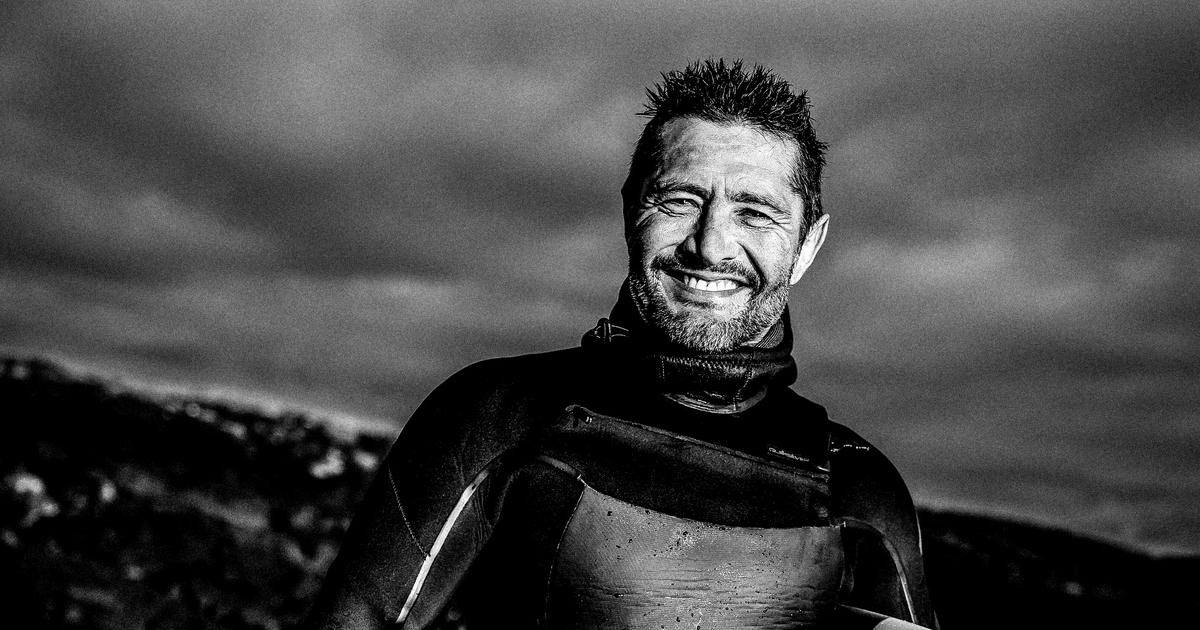Get out of denial.
The job is not easy for someone addicted to alcohol, drugs or gambling.
So imagine when what you obsess over is extremely valued in society?
Servane Heudiard published on Thursday March 25 a testimonial book on his addiction to sport.
“A prison without bars,” she says, referring to the title of the book.
This 48-year-old Parisian woman has never competed in a so-called high level competition.
She was also never paid to run, cycle or row more than five or six hours a day.
Yet she recounts today how more than 25 years of intensive practice plunged her into the depths of abuse.
In medical jargon, we talk about bigorexia.
Or how the appetite for physical effort becomes excessive and can take precedence over everything else.
Initially, the expression targeted the behavioral deviations of body-builders, force-fed on food supplements and anabolic products and trapped in the cult of their body.
Over the years, the spectrum has widened to include all these athletes - regardless of their level - prey to isolation and psychological suffering by dint of shaping their daily lives on outings they can no longer do without.
“These addictions are qualified as silent because they are invisible at the start.
99% of the time, it's okay.
But in a minority, this intensive practice leads to severe joint pain and sometimes to depressive symptoms, ”summarizes psychiatrist Dan Velea.
A refuge and a quest for self-esteem
Filling a failing self-image, overcoming poor stress management, satisfying a need for permanent control… There are various reasons for taking refuge in sport.
“And it can affect everyone,” warns this Paris-based therapist.
There is the novice, who will become addicted to the hormones they secrete (endorphin, dopamine, adrenaline ...) and feel euphoric when seeing his body change.
But there are also former top athletes, who fail to reason with themselves after the end of their careers.
"
With an almost sickly reserve since childhood, Servane the lonely has found in these hours of perspiration something to gain in self-esteem.
She who has always been afraid of being the "ball" of service.
Throughout her 210 pages of confession, this childless bachelor does not spare herself and lists all that this addiction has led her to do as a compromise.
Like this summer Saturday in Normandy, when her sister's wedding was not a sufficient reason to miss her ritual Sunday morning rowing outing.
She attends the ceremony in front of the mayor and the priest, but does not hesitate to miss the evening and jump on the last train to Paris.
BIGOREXIA
Servane Heudiard practices high-dose rowing in Île-de-France.
Denis Boulanger
His book is full of anecdotes of this style.
Her way of "alerting" - a word she repeats over and over - and to prevent some from coming, like her, to states of severe depression in the event of inactivity and waiting for the serious injury (s) to open the eyes.
“Some of my cycling friends are not receptive when I suggest they cut back on sports.
Yet I detect disturbing behavior.
"
"He started with jogging and in a few months became an extreme athlete"
The group effect doesn't really help to break the blindness.
In the same way as these connected applications which glorify the performances and the statistics of the ones and the others on the social networks, points out the doctor William Lowenstein.
This addictologist, president of the association SOS addictions, receives many "bigorexics" in his office.
His typical patient?
The amateur triathlete.
“He begins with jogging and in a few months becomes an extreme athlete (...) Except that during periods of shutdown, particularly in the event of an injury, he feels uneasy, finds himself lacking and develops disorders mood and sleep.
"
Servane Heudiard, whose route will also be the subject of a documentary on France 2, says it is now out of the woods.
“I sometimes miss one session a year.
But otherwise, I always manage to wedge at least an hour of sport in my day, ”she describes.
Since confinement, she has averaged four to five daily.
A rhythm that she knows out of the ordinary but of which she is not ashamed.
This freelance translator does not intend to give up these doses of sweat under any circumstances, as they are essential to "her physical and intellectual development".
"We do not advise anyone to stop completely, says Dr. Lowenstein.
You just have to be aware of your behavior and take responsibility.
Each case is different and obviously does not deserve psychological follow-up.
The proof is those who claim to manage their addiction the best in the world.
This is for example the case of former international footballers Bixente Lizarazu and Robert Pirès.
Be careful, however, if you learn that a friend is lying in public about the actual number of hours he spends in the gym, in his saddle or on his rower.
Keeping quiet, as Servane once was, what others would like to do, if only halfway, is perhaps a sign that something is wrong.
Morning essentials newsletter
A tour of the news to start the day
Subscribe to the newsletterAll newsletters
“Bigorexia: Sport, my prison without bars”
,
by Servane Heudiard, Éditions Amphora, 214 p.
17.50 euros.
In bookstores on March 25.









